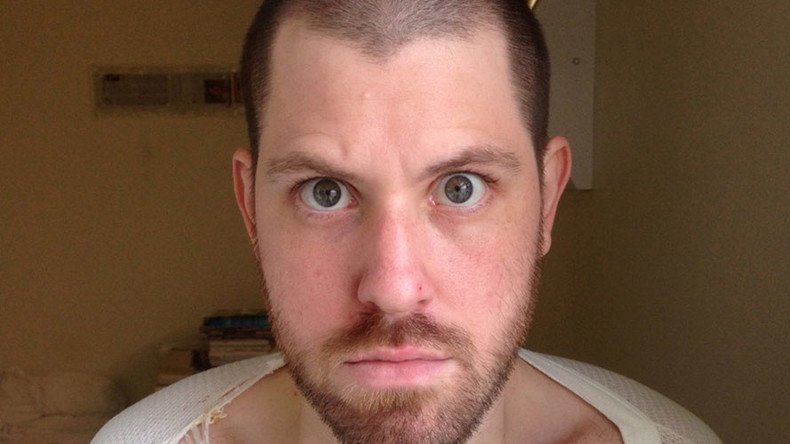Virginia executes 'mentally ill' inmate despite calls for clemency

Convicted killer William Morva has been executed, despite his mental disorder and appeals from the daughter of one of his victims to Virginia Governor Terry McAuliffe to halt the execution.
The lethal injection was administered around 9:00pm local time, and Morva's death was declared about 15 minutes later.
Morva simply answered, "no," when asked if he had last words, according to witnesses, WTVR reported.
Virginia Department of Corrections spokeswoman Lisa Kinney said there were no complications with the execution, according to the Richmond Times-Dispatch.
Morva’s lawyers insist that he was suffering from a severe mental illness that the jury was not aware when they sentenced him to death.
Jailed in 2005 for trying to rob a convenience store, Morva escaped a year later when he was taken to the hospital to treat an injury. At the hospital, he overpowered an officer and took his gun, with which he killed unarmed hospital guard Derrick McFarland, a father of two.
Before he was captured, Morva also fatally shot Montgomery County Sheriff Eric Sutphin, in the back of his head. The late sheriff’s daughter, Rachel Sutphin, had urged Democratic Governor McAuliffe to halt the execution of her father’s killer.
"I am against the death penalty for religious and moral reasons," Sutphin said in an email to reporters as quoted by CBS News. "I have fought and will continue to fight for clemency for all death row inmates until Virginia declares the death penalty unconstitutional. I have sent my own letter to the Governor showing my support for clemency."
However, other family members of Morva’s victims do not share that view. Sheriff Sutchin’s mother said the execution would bring "justice for my son," according to the Roanoke Times.
Morva escaped and shot the two men because he believed someone in jail wanted him to die, according to his lawyers. After the jury sentenced Morva to death, he was diagnosed with delusional disorder, a severe mental illness akin to schizophrenia that makes it impossible for him to distinguish between delusions and reality, his attorneys said.
Prosecutors maintain that it was established during trial that Morva suffered from a variety of personality disorders, and yet the jury decided that the inmate was able to comprehend the consequences of his actions.
Governor McAuliffe said in a statement: “At the conclusion of that review, I have determined that Mr. Morva was given a fair trial and that the jury heard substantial evidence about his mental health as they prepared to sentence him in accordance with the law of our Commonwealth.”
McAuliffe added, “In short, the record before me does not contain sufficient evidence to warrant the extraordinary step of overturning the decision of a lawfully empaneled jury following a properly conducted trial.”
On Wednesday, two United Nations human rights experts called on McAuliffe to stop the execution. As did a group of Virginia clergy, a dozen state lawmakers and the National Alliance on Mental Illness.
Following his conviction trial, Morva went on a courtroom rant saying, "There are others like me, and I hope you know that. And soon they're going to get together. They're going to sweep over your whole civilization, and they're going to wipe these smiles off your faces forever."
McFarland's widow, Cindy, shouted at him, "You deserve to burn in hell!"
Recent changes in Virginia’s execution protocol mean that he remained shielded from the view of his attorney and media witnesses until after IV lines with lethal drugs had been inserted into his veins.
Execution through lethal injection has been under scrutiny in states that have capital punishment regimes after a number of botched executions. In Ohio, executions had been suspended for months pending a federal appeals court decision which last month ruled in the state’s favor and allowed it to resume executions using the method.













